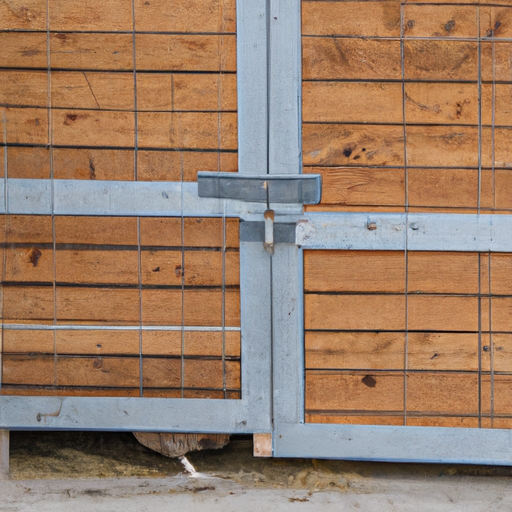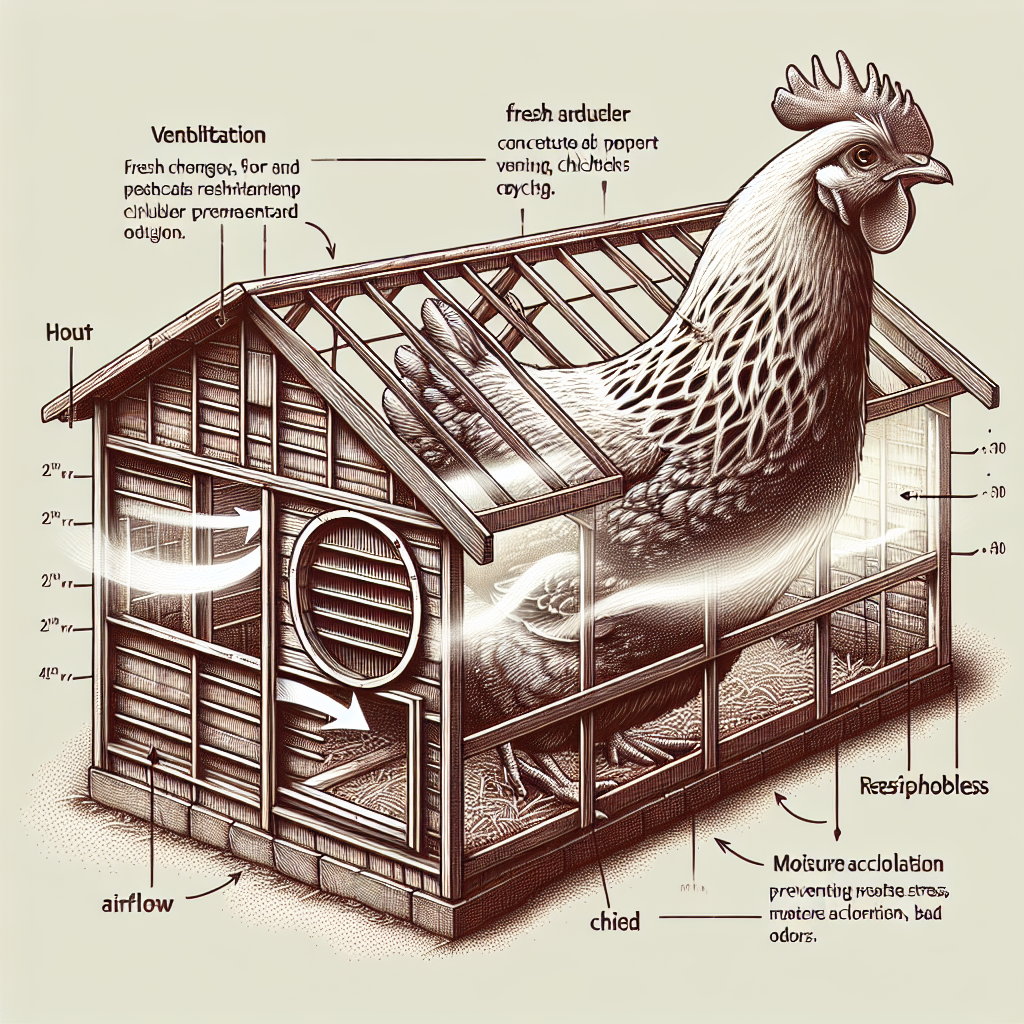If you’re a backyard chicken keeper, you may be wondering if there are any biosecurity measures you should be taking to keep your flock healthy. Well, the answer is a resounding yes! Biosecurity is crucial for safeguarding your chickens against potential diseases and infections. In this article, we will explore some simple yet effective biosecurity measures that every backyard chicken keeper should consider implementing. So, if you want to ensure the well-being of your beloved feathered friends, keep reading to find out more!
Biosecurity Measures for Backyard Chicken Keepers
Backyard chicken keeping has become more and more popular over the years, as people strive for self-sufficiency and the joy of raising their own flock. However, with this increase in backyard flocks, comes the need for biosecurity measures to protect your chickens from diseases. Implementing proper biosecurity measures is crucial to ensure the health and well-being of your chickens. In this comprehensive article, we will explore various biosecurity measures that you, as a backyard chicken keeper, can implement to safeguard your flock.
Implementing Infrastructure Measures
The first step in implementing biosecurity measures is to establish proper infrastructure for your flock. This includes providing a secure and predator-proof coop and run for your chickens. A sturdy and well-maintained coop will not only protect your chickens from predators but will also prevent contact with wild birds and rodents, which can transmit diseases. Additionally, ensure that the coop has proper ventilation and sufficient space for the number of chickens you have.
Practicing Good Hygiene
Maintaining good hygiene practices is essential in preventing the spread of diseases among your flock. Keep your coop and run clean by regularly removing droppings and replacing soiled bedding. Regularly sanitize the waterers and feeders to prevent the buildup of bacteria. Make sure to wash your hands thoroughly before and after handling your chickens to reduce the risk of cross-contamination.
Monitoring and Maintaining Flock Health
Regularly monitoring the health of your flock is crucial in detecting any signs of illness early on. Perform routine health checks to observe your chickens’ behavior, appetite, and overall appearance. If you notice any abnormalities or signs of illness such as lethargy, decreased appetite, or respiratory distress, consult a veterinarian immediately. Vaccinations and deworming should be done as recommended by a professional to prevent common poultry diseases.
Proper Waste Management
Proper waste management is a vital aspect of maintaining a healthy and disease-free flock. Dispose of chicken waste properly, away from your coop and run. Manure should be composted and allowed to decompose before using it in your garden. This prevents the buildup of pathogens and reduces the risk of diseases. Avoid using fresh manure in your garden, as it may contain harmful bacteria that can contaminate your crops and potentially infect humans.
Preventing Wild Bird Contact
Wild birds can carry diseases, such as avian influenza, and introduce them to your flock. To prevent contact between wild birds and your chickens, it is essential to bird-proof your coop and run. Cover any openings with wire mesh and ensure there are no gaps or holes that wild birds can enter through. Avoid placing feeders and waterers outside the coop, as they may attract wild birds and increase the risk of disease transmission.
Purchasing Birds from Reliable Sources
When adding new birds to your flock, it is crucial to purchase them from reliable and reputable sources. Choose hatcheries or breeders that prioritize biosecurity and have a history of healthy flocks. Avoid buying birds from questionable sources or mixing birds from different flocks without proper quarantine and testing, as it increases the risk of introducing diseases to your established flock.
Quarantining New Birds
Quarantining new birds before introducing them to your flock is a critical step in preventing the spread of diseases. Isolate new birds in a separate coop or area for at least 30 days to observe them for any signs of illness. Monitor their health closely during this time and consult a veterinarian if needed. Quarantine also allows time to deworm and treat the new birds if necessary before integrating them with your existing flock.
Controlling Rodent and Pest Populations
Rodents and pests can not only damage your coop and feed storage but can also introduce diseases to your flock. Implement measures to control rodent and pest populations, such as sealing entry points, storing feed in secure containers, and regularly inspecting for signs of infestation. Additionally, consider using traps or employing natural strategies like predatory birds or cats to deter rodents and pests.
Educating and Training Chicken Keepers
Ongoing education and training of chicken keepers are crucial in implementing effective biosecurity measures. Stay informed about current research, best practices, and emerging diseases in poultry. Attend workshops or webinars, join local poultry groups, and connect with experienced chicken keepers to learn from their expertise. Continuously update your knowledge to ensure the health and well-being of your flock.
Developing Emergency Response Plans
In the event of a disease outbreak or other emergencies, having an emergency response plan in place can save valuable time and potentially mitigate the spread of diseases. Develop a plan that outlines steps to be taken in case of a disease outbreak, including isolating and treating affected birds, notifying relevant authorities or veterinarians, and implementing biosecurity measures to control the spread. Regularly review and update your emergency response plan to ensure its effectiveness.
In conclusion, implementing biosecurity measures is crucial for backyard chicken keepers to protect their flock from diseases. By following infrastructure measures, practicing good hygiene, monitoring flock health, managing waste properly, preventing wild bird contact, purchasing from reliable sources, quarantining new birds, controlling rodents and pests, educating and training chicken keepers, and developing emergency response plans, you can ensure the health and well-being of your flock. Remember, a healthy flock is a happy flock!




